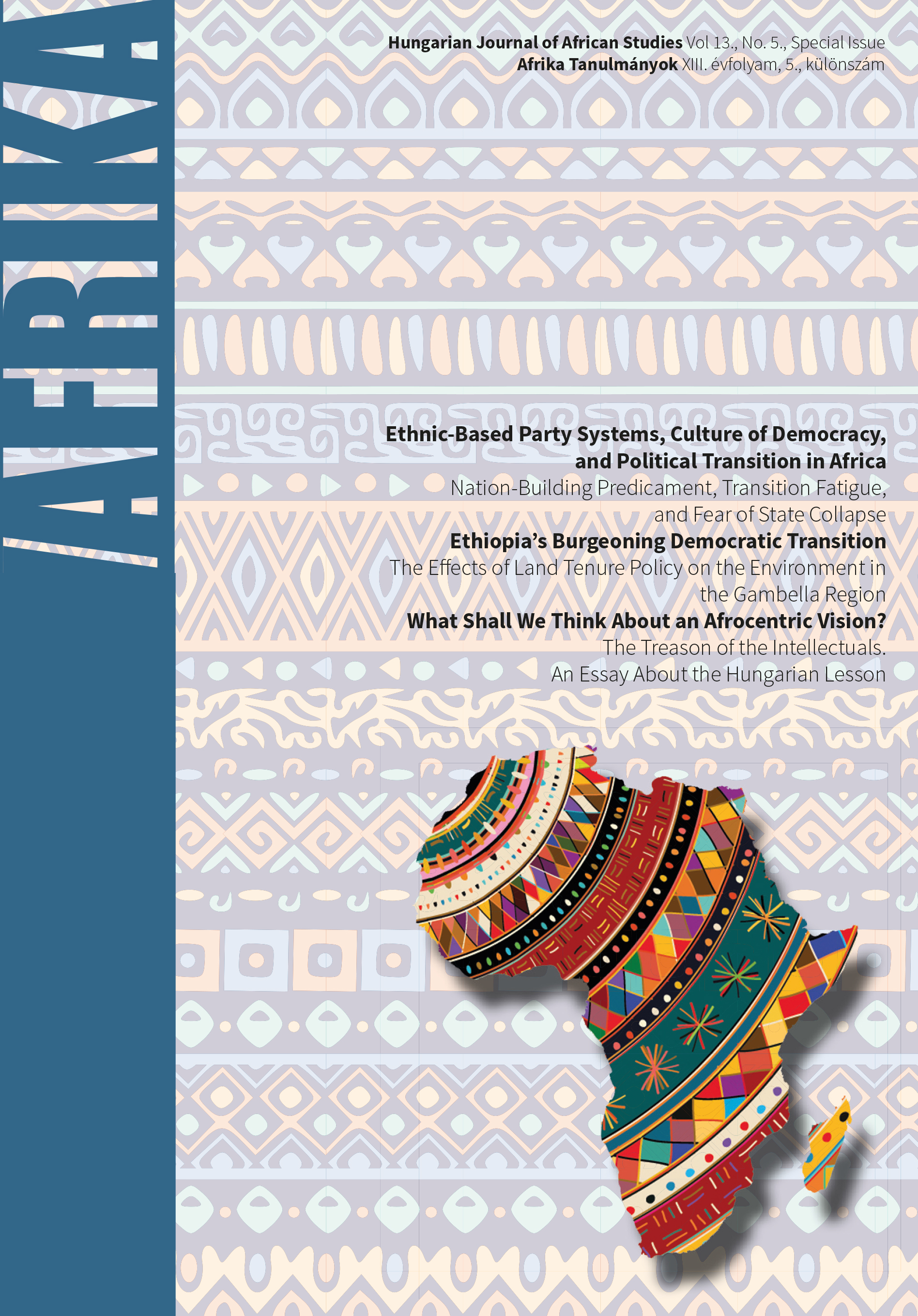Ethnic-Based Party Systems, Culture of Democracy, and Political Transition in Africa: Challenges and Prospects for Political Transition in Ethiopia
DOI:
https://doi.org/10.15170/AT.2019.13.5.4Kulcsszavak:
Africa, Ethiopia, election, political transitionAbsztrakt
According to David Easton, “Politics involves change; and the political world is a world of flux, tensions, and transitions” (Miftah, 2019: 1). Ethiopia’s history of political transition fits the conceptualization of politics as changes and the political world as a world of flux. Political transition in Ethiopia has been dominantly tragic. Atse Tewodros II’s political career ended in the tragedy of Meqdela (1868), Atse Yohannes IV’s reign culminated in the ‘Good Friday in Metema’ (1889), while Menelik’s political career ended peacefully, and that of his successor, Iyasu, ended in tragedy before his actual coronation (1916). The emperor was overthrown in a coup in 1974, and Mengistu’s regime came to an end when he fled the country for Zimbabwe (1991). (Miftah, 2019) Thus far, revolutions, peasant upheavals, and military coup d’états have been political instruments of regime change in Ethiopia. What is missing in the Ethiopian experience of transition so far is the changing of governments through elections. This article discusses the challenges and opportunities for a political transition in Ethiopia using comparative data analysis and various presentation methods.
Downloads
Megjelent
Hogyan kell idézni
Folyóirat szám
Rovat
License

This work is licensed under a Creative Commons Attribution-NonCommercial-NoDerivatives 4.0 International License.
















